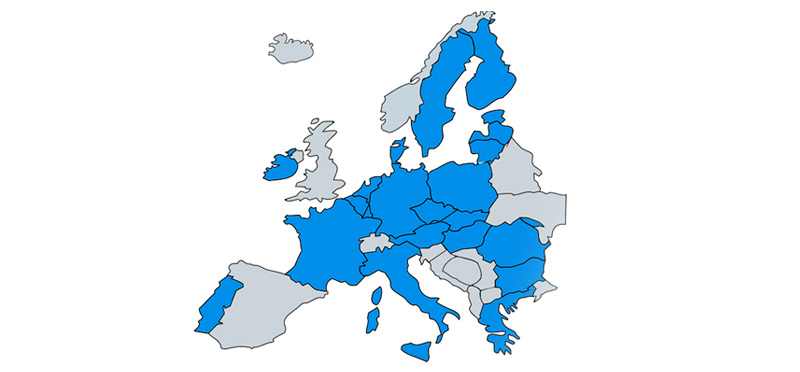1 June 2023 - The UPC launches today!

The Unified Patent Court (UPC) launches today as a common court of the 17 EU Member States that are participating so far. This will establish a unified jurisdiction for infringement and invalidity actions in Europe, which has been the subject of political discussions for many years.
A single patent for currently 17 EU states - the unitary patent
There is therefore general euphoria about the actual entry into force of the UPC. However, it should not be forgotten that a unitary patent, or - to be precise - a European patent with unitary effect, is only one possibility for patent protection in Europe. In addition, it is still possible to obtain patent protection via the well known classical European patent, i.e. a European patent without unitary effect, and also national patents.
The application and grant procedure for European patents with or without unitary effect remains unchanged and is to be carried out before the European Patent Office (EPO). It runs according to the familiar rules of the EPC until the patent is granted. Only then must the patent proprietor decide whether to hold the patent obtained as a unitary patent or as a European patent without unitary effect.
1 June 2023 and UPC in force- what applies to the unitary patent?
- The "sunrise period" ended yesterday
- The UPC decides on infringement and validity of European patents with unitary effect and non-opted out European patents without unitary effect, in a unified procedure
- Pleadings are to be filed digitally only via the CMS, authentication and signing of documents is to be done only with certificates according to the eIDAS standard.
With the entry into force of the UPCA, the UPC will have jurisdiction for infringement and revocation actions concerning a unitary patent - and likewise for a European patent without unitary effect or a European patent application.
The UPC will have jurisdiction in each of these cases, even if no request for unitary effect has been filed at all. And this also applies to European patents currently in force or European patent applications currently pending.
Action possible: opt out - opt in
However, there is an option: If you decide to have your European patent validated in a purely "classical" way, i.e. if you do not file a request for unitary effect, you have the possibility for a transitional period of 7 years (which may be extended to 14 years) to have infringement and invalidity proceedings heard by national courts - as was the case before the entry into force of the UPCA (Art. 83(1) UPCA). You can even declare that your European patent without unitary effect should not be subject to the jurisdiction of the Unified Patent Court (so-called "opt out", Art. 83(3) UPCA).
You can also once submit your patent back to the jurisdiction of the Unified Patent Court again after declaring “opt out” by a so-called "opt in" (Art. 83(4) UPCA).
Regarding the "opt out", you should also know that an amendment to the German law on international patent agreements (IntPatÜbkG) enters into force at the same time as the UPCA. According to this, a German patent loses its effect by declaring an "opt out" to the extent that it protects the same subject matter as your European patent granted to the same inventor or his successor in title with effect in Germany.
The regulation is not new in itself, but corresponds exactly to what already applied before in the context of a purely "classical" validation. In this case, too, a German patent lost the previously mentioned effect. The loss of effect could not and cannot be reversed in the future. It is also known as the double protection prohibition.
The unitary patent: centrally enforceable, centrally attackable
The unitary patent is administered centrally by the EPO and can be both centrally enforced and centrally attacked with the UPC. This can be both an advantage and a disadvantage for patent owners.
An exception to this centralisation or unification is the granting of licences: this is still possible on a territorially restricted basis, i.e. limited to individual countries or only a part of the territories of the countries involved.
Patent protection and appeal proceedings
Do you have any questions or requests regarding patent protection, including the defence or challenge of patents?
We are an experienced patent law firm, for national as well as international patent protection.
Please ask us, you can reach us by phone at +49 69 69 59 60-0 or info@kollner.eu.







